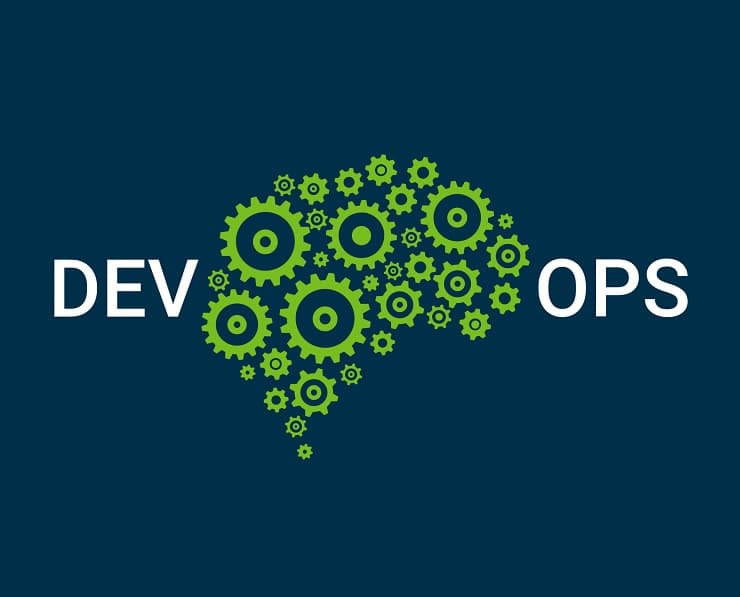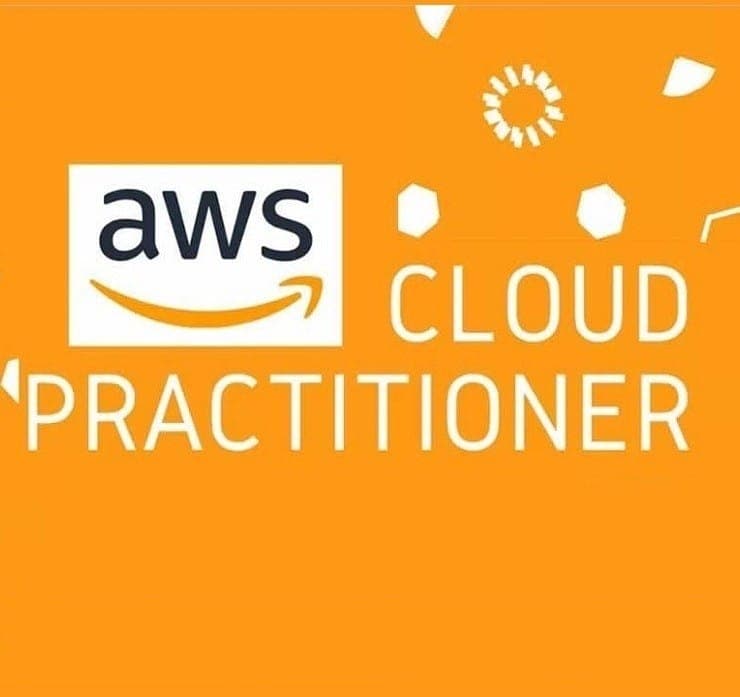Student Feedback
AWS Certified Data Engineer - Associate DEA-C01 Certification Video Training Course Outline
Intorduction
Data Engineering Fundamentals
Storage
Database
Migration and Transfer
Compute
Containers
Amalytics
Application Integration
Security, Identity, and Compliance
Networking and Content Delivery
Management and Govermamce
Machine Learning
Developer Tools
Everything Else
Wrapping up
Intorduction
AWS Certified Data Engineer - Associate DEA-C01 Certification Video Training Course Info
AWS Certified Data Engineer Associate (DEA-C01) Complete Training
The Ultimate Course to PASS the AWS Certified Data Engineer Exam | Includes Complete Practice Exam with Detailed Explanations
What You Will Learn From This Course
• Pass the AWS Certified Data Engineer – Associate Exam (DEA-C01) confidently
• Gain hands-on experience with AWS data engineering tools and services
• Build and orchestrate end-to-end data pipelines using AWS Glue, Redshift, and other AWS services
• Perform data ingestion, transformation, and storage for large-scale data processing
• Understand and apply best practices for AWS data engineering in real-world scenarios
• Access downloadable slides and learning resources for effective review
• Take a full practice exam with detailed explanations to prepare thoroughly
• Strengthen your practical skills to work efficiently as a data engineer on AWS
• Apply AWS services to design, manage, and monitor data workflows
• Gain confidence in managing data pipelines, ETL processes, and warehousing solutions
• Learn step-by-step strategies to maximize success on the DEA-C01 exam
Learning Objectives
By the end of this course, you will be able to:
• Master all topics required to pass the AWS Certified Data Engineer – Associate exam
• Develop practical knowledge of AWS data services, including Glue, Redshift, S3, Lambda, and more
• Design, implement, and optimize scalable data pipelines on AWS
• Perform data ingestion from multiple sources and manage ETL workflows effectively
• Implement data warehousing solutions using Redshift and integrate them with analytics tools
• Monitor, troubleshoot, and optimize data workflows for performance and cost efficiency
• Apply real-world use cases and projects to strengthen learning and retention
• Understand AWS best practices for security, governance, and compliance in data engineering
• Prepare confidently with a full-length practice exam and guided explanations
• Gain actionable tips and techniques to approach the exam strategically
Target Audience
This course is designed for:
• Aspiring AWS Data Engineers preparing for the DEA-C01 certification exam
• Data professionals looking to gain hands-on experience in AWS data engineering
• Developers, analysts, and engineers seeking to design and manage data pipelines
• IT professionals aiming to enhance their AWS knowledge for career advancement
• Students and graduates interested in entering the data engineering field with AWS skills
• Professionals who want practical, project-based experience with AWS Glue, Redshift, and other services
• Anyone looking for a structured, step-by-step approach to pass the AWS Certified Data Engineer exam
Prerequisites
To get the most out of this course, you should have:
• Basic understanding of data concepts such as databases, ETL processes, and data storage
• Familiarity with general cloud computing concepts and AWS fundamentals
• Willingness to create and use an AWS account for hands-on exercises (Free Tier recommended)
• Curiosity and interest in learning practical data engineering skills
• Basic understanding of SQL and data querying techniques is beneficial but not mandatory
• A computer with internet access to follow along with AWS labs and exercises
• Motivation to complete quizzes, exercises, and practice exams to reinforce learning
Course Overview
This course is designed to provide a complete preparation path for the AWS Certified Data Engineer – Associate exam (DEA-C01) while simultaneously equipping you with practical AWS data engineering skills. Through a combination of hands-on exercises, real-world projects, and theory, you will gain the confidence to tackle the exam and apply your skills in real-life scenarios.
The course emphasizes practical application of AWS services such as Glue for ETL processes, Redshift for data warehousing, S3 for storage, and Lambda for serverless orchestration. Each topic is carefully explained with step-by-step demonstrations to ensure that you not only understand the concepts but also know how to apply them effectively.
You will also receive downloadable slides for all lessons, which serve as a valuable reference during your exam preparation. In addition, quizzes and exercises are integrated throughout the course to reinforce your knowledge and assess your progress.
One of the key highlights of this course is the full-length practice exam. This exam simulates the actual DEA-C01 test, giving you a realistic environment to practice under timed conditions. Each question comes with detailed explanations to help you understand why the correct answer is right and why other options are incorrect. This approach ensures that you are not only memorizing answers but genuinely mastering the concepts.
The course also includes tips and strategies for approaching the DEA-C01 exam. You will learn how to prioritize your study, focus on high-impact topics, and manage your time effectively during the test. By the end of the course, you will have a clear roadmap to pass the exam with confidence.
Hands-On Learning
Practical, hands-on experience is at the core of this course. You will work on real-world scenarios to learn how data engineering is applied in professional environments. This includes:
• Setting up data ingestion pipelines using AWS Glue
• Transforming and cleaning data for analytics and reporting
• Building and managing data warehouses using Amazon Redshift
• Orchestrating complex workflows with AWS services
• Monitoring pipeline performance and optimizing for cost and efficiency
• Using serverless services like Lambda to automate data workflows
These exercises are designed to mirror challenges you will face as a real AWS Data Engineer, giving you not just exam knowledge but also job-ready skills.
Why Choose This Course
This course is the most comprehensive and up-to-date preparation for the DEA-C01 exam. It covers all topics in detail, integrates hands-on labs, provides downloadable resources, and includes a complete practice exam with explanations. The step-by-step guidance ensures you are learning efficiently, focusing only on what truly matters to pass the exam and succeed in real-world data engineering roles.
By completing this course, you will not only gain the certification but also the practical expertise needed to handle AWS data engineering projects, making you a highly valuable professional in the field. The structured approach, combined with real-world examples, ensures you build confidence and competence simultaneously.
Course Benefits
• Complete coverage of all DEA-C01 exam topics
• Practical, hands-on labs and exercises to reinforce learning
• Downloadable slides and resources for exam preparation
• Full practice exam with detailed explanations for every question
• Real-world scenarios to build job-ready skills
• Step-by-step guidance to maximize efficiency and focus on key areas
• Tips and strategies to ensure exam success
• Learn AWS Glue, Redshift, S3, Lambda, and other essential AWS services
• Quizzes and assessments to track progress
• Updated content to reflect the latest AWS data engineering best practices
By the end of this course, you will be fully prepared to pass the AWS Certified Data Engineer – Associate Exam (DEA-C01) and apply your skills in professional data engineering roles. You will leave the course with both the certification and practical expertise to design, manage, and optimize AWS data pipelines effectively.
Course Duration
The AWS Certified Data Engineer Associate (DEA-C01) course is designed to provide a comprehensive learning experience while accommodating a flexible schedule for learners. The course is structured to be completed in approximately 8 to 12 weeks, depending on your pace and prior experience with AWS and data engineering concepts. Learners who dedicate 6–8 hours per week can complete the course comfortably within this timeframe, mastering both theoretical concepts and hands-on practical skills.
The course is organized into modules that gradually progress from foundational topics to advanced data engineering techniques. This modular approach allows learners to focus on one concept at a time, practice it, and then build upon that knowledge in subsequent modules. Learners can revisit recorded lectures and lab exercises as needed, making the course suitable for both self-paced learners and those seeking a structured timeline.
Flexibility is built into the course to accommodate different learning needs. Beginners may take additional time to familiarize themselves with core AWS services such as S3, IAM, Redshift, and Glue, while experienced professionals can accelerate through the foundational modules and focus more on advanced topics, practical projects, and exam preparation. Hands-on labs and capstone projects are designed to provide practical exposure without overwhelming learners, ensuring a balance between learning, practice, and preparation for the DEA-C01 exam.
Each module includes lectures, hands-on exercises, quizzes, and downloadable resources. Learners can schedule their study sessions according to their availability and progress through the course at a comfortable pace. The final weeks of the course emphasize review, practice exams, and capstone project completion, ensuring that learners are fully prepared for certification.
The course also includes dedicated time for exam preparation, including a full-length practice exam, detailed explanations for each question, and strategies for approaching the DEA-C01 exam. By the end of the course, learners will have gained both the practical skills necessary to work as an AWS Data Engineer and the knowledge required to pass the certification exam confidently.
Tools & Resources Required
To make the most of the AWS Certified Data Engineer Associate course, learners need a set of essential tools and resources that enable hands-on practice, project implementation, and efficient learning. The primary tool required is an AWS account. Most exercises and labs use the AWS Free Tier, which allows learners to experiment with services such as S3, Glue, Redshift, Lambda, Kinesis, and Step Functions without incurring costs. For learners who need to work with larger datasets or advanced features, temporary AWS service credits may be considered, but the Free Tier is sufficient for the majority of labs and projects.
A stable internet connection and a computer capable of running web browsers and terminal tools are required to access AWS services and course materials. Familiarity with a modern web browser such as Chrome, Firefox, or Edge is recommended, as all AWS console interactions are performed through the browser. For command-line exercises, learners may use the AWS CLI (Command Line Interface) or integrated development environments that support AWS SDKs. Guidance on installing and configuring these tools is provided during the course.
Downloadable course resources, including slides, cheat sheets, and lab instructions, are provided to assist learners in reviewing content offline and following hands-on exercises step by step. These resources are carefully structured to align with each module, making it easy to reference key concepts, commands, and best practices during labs and project implementation.
Practical exercises often involve datasets for ingestion, transformation, and analytics. Sample datasets are provided within the course to ensure learners can practice without sourcing external data. These datasets cover a range of scenarios, including transactional data, log data, IoT streams, and large-scale structured and unstructured datasets. For learners who wish to extend projects or experiment further, guidance is provided on how to generate or import additional data sources into AWS services.
Quizzes and assessments are delivered online through the course platform, requiring only a standard web browser to access. For the full-length practice exam, learners will also need access to a quiet environment where they can simulate real exam conditions, ensuring an effective preparation experience.
The course recommends that learners have basic familiarity with data concepts, SQL queries, and cloud computing principles to maximize the effectiveness of hands-on labs. While prior AWS experience is helpful, the course is designed to accommodate beginners and guide them step by step through setting up and using AWS services. For labs requiring coding or scripting, basic knowledge of Python or SQL is sufficient to complete exercises successfully.
Supportive resources, such as discussion forums, instructor Q&A sessions, and additional reference materials, are included to enhance learning. These resources help learners troubleshoot issues, clarify concepts, and engage with the learning community. By leveraging these tools and resources, learners can ensure they not only understand the theoretical concepts but also gain the practical skills necessary for real-world AWS data engineering tasks.
The combination of flexible course duration, structured modules, hands-on labs, downloadable resources, and AWS account access creates a complete learning environment. Learners are equipped to progress through foundational topics, advanced data engineering techniques, and practical projects while preparing thoroughly for the DEA-C01 certification exam. The course design ensures that learners have everything they need to succeed, from essential tools and resources to expert guidance and assessment support.
By the conclusion of this part of the course, learners will have a clear understanding of the time commitment required, the resources necessary for successful completion, and how to leverage these tools to gain practical experience. Mastery of the tools and resources is critical for building end-to-end data pipelines, performing data ingestion and transformation, optimizing data warehouses, ensuring security and compliance, and implementing analytics workflows in AWS. Proper utilization of these resources ensures that learners are fully prepared for both the exam and professional roles as AWS Data Engineers.
This structured approach, combined with detailed instructions and supportive resources, empowers learners to progress efficiently and confidently. The hands-on experience, coupled with a focus on practical application, ensures that learners not only pass the DEA-C01 exam but also acquire the knowledge and skills necessary to implement scalable, secure, and optimized data engineering solutions in real-world AWS environments.
The course provides a comprehensive roadmap, ensuring that learners can plan their study schedule effectively, access the required tools and resources, complete practical exercises, and prepare thoroughly for the DEA-C01 certification exam. By dedicating the recommended time and leveraging the tools provided, learners will finish the course with both certification readiness and actionable AWS data engineering expertise.
Career Opportunities / Next Steps
Completing the AWS Certified Data Engineer Associate (DEA-C01) course opens up a wide range of career opportunities in cloud computing, data engineering, and analytics. AWS certifications are highly valued by employers worldwide, and the DEA-C01 certification validates practical knowledge and skills in designing, building, and managing data pipelines in the AWS ecosystem.
One of the most immediate career paths is as an AWS Data Engineer. In this role, professionals are responsible for designing, implementing, and managing scalable data pipelines, ensuring data integrity, and optimizing ETL workflows. Organizations rely on AWS Data Engineers to handle complex datasets, integrate data from multiple sources, and provide a foundation for analytics and machine learning projects. This certification demonstrates that a candidate can handle these responsibilities effectively, giving them a competitive advantage in the job market.
Another opportunity is becoming a Cloud Data Architect. Certified professionals can design end-to-end data solutions, including storage, processing, and analytics pipelines. They work closely with data scientists, business analysts, and IT teams to ensure data is accessible, secure, and reliable. The knowledge gained from the DEA-C01 course equips learners with the architectural understanding necessary to implement cloud-native solutions that are both cost-effective and high-performing.
Roles such as Data Analyst, Business Intelligence Engineer, or Analytics Engineer also benefit from AWS Data Engineering skills. Even if the primary role involves analysis, understanding how to build and manage pipelines allows professionals to work more efficiently with data, automate workflows, and produce insights faster. Organizations increasingly prefer analysts who can interact directly with data infrastructure in AWS, making these skills highly marketable.
For professionals interested in career advancement, the next step after obtaining the DEA-C01 certification could be pursuing the AWS Certified Solutions Architect Associate or Professional certifications. These certifications expand knowledge beyond data pipelines into broader cloud architecture and infrastructure management, allowing certified engineers to take on larger projects, lead teams, or transition into cloud architecture roles.
Another potential career path is specialization in machine learning and data science on AWS. With the foundational knowledge of data ingestion, transformation, and storage gained from this course, learners can progress to building machine learning pipelines using AWS SageMaker, Lambda, and other related services. Organizations increasingly seek professionals who can bridge the gap between data engineering and machine learning implementation, making these combined skills highly valuable.
Freelancing and consulting are also viable options for certified AWS Data Engineers. Many organizations hire independent consultants to design, implement, and optimize data pipelines or migrate existing systems to AWS. Certification assures clients of expertise, reliability, and practical knowledge, providing a strong competitive edge in the consulting market.
Continuing education is an important next step to remain competitive. AWS frequently updates its services, introduces new tools, and changes best practices. Professionals are encouraged to engage in ongoing learning through AWS webinars, advanced courses, community forums, and practical projects to stay current. This proactive approach ensures that skills remain relevant and aligned with industry trends.
Networking with professionals in AWS communities, attending workshops, and participating in hackathons are excellent ways to enhance career prospects. Sharing knowledge, collaborating on projects, and engaging with real-world scenarios help build both technical expertise and professional credibility. Many employers value active engagement and practical experience as much as formal certification, making these activities crucial for career growth.
Professional development also includes building a portfolio of projects. Hands-on projects completed during the course, such as end-to-end data pipelines, data lake implementations, and Redshift analytics workflows, can be showcased to potential employers or clients. A strong portfolio demonstrates applied knowledge, problem-solving abilities, and readiness to contribute to organizational goals immediately.
For recent graduates and professionals transitioning from other IT domains, the AWS Certified Data Engineer Associate certification provides a structured pathway to enter the cloud and data engineering domain. Combining certification with practical skills ensures candidates can compete effectively in entry-level roles while positioning themselves for rapid advancement to senior engineering or architectural positions.
Industry demand for certified AWS Data Engineers continues to grow across sectors, including finance, healthcare, retail, technology, and logistics. Companies are increasingly relying on cloud infrastructure to manage big data, perform analytics, and drive business decisions. Certified professionals can leverage this demand to secure roles with attractive salaries, benefits, and opportunities for advancement.
The course also equips learners with problem-solving and analytical skills that are applicable beyond AWS-specific roles. Knowledge of ETL processes, data lake architecture, pipeline orchestration, and data analytics enables professionals to contribute to any data-centric organization, regardless of the specific cloud provider. This versatility enhances employability and opens doors to cross-platform opportunities.
Next steps after certification involve applying knowledge to increasingly complex projects, exploring advanced AWS services, and contributing to enterprise-scale data engineering initiatives. Continuous skill development, practical experience, and exposure to real-world challenges are essential for career progression and long-term success.
Conclusion
The AWS Certified Data Engineer Associate (DEA-C01) course provides a comprehensive and practical pathway to mastering data engineering on AWS. Through structured modules, hands-on labs, real-world projects, and exam-focused preparation, learners gain the knowledge and skills necessary to design, implement, and optimize scalable data pipelines and analytics solutions.
By completing this course, learners acquire a strong foundation in AWS services critical for data engineering, including Glue, Redshift, S3, Lambda, Kinesis, and Step Functions. Practical exercises ensure that learners can apply theoretical knowledge to real-world scenarios, preparing them for both the certification exam and professional responsibilities.
The course emphasizes a balance between technical expertise and exam readiness. Learners gain practical experience building pipelines, managing ETL workflows, securing data, optimizing performance, and performing analytics. Simultaneously, the course provides strategies, practice exams, and resources to ensure successful certification.
Obtaining the DEA-C01 certification positions learners for a range of career opportunities, from AWS Data Engineer and Cloud Data Architect to Analytics Engineer and machine learning specialist. Certification demonstrates credibility, practical knowledge, and a commitment to professional growth, opening doors to both full-time employment and consulting opportunities.
Beyond certification, learners develop transferable skills in cloud-based data engineering, analytics, and workflow orchestration. These skills are applicable across industries and provide a foundation for continuous learning and career advancement in the ever-evolving cloud computing landscape.
The course’s structured approach, comprehensive coverage, and hands-on methodology ensure that learners are not only prepared for the DEA-C01 exam but also equipped to apply their skills effectively in professional settings. By leveraging the knowledge, tools, and resources provided, learners can confidently build, manage, and optimize data pipelines, contribute to organizational success, and advance their careers in AWS data engineering.
In summary, the AWS Certified Data Engineer Associate (DEA-C01) course is a complete learning solution that combines theory, practical application, and certification preparation. Completing this course equips learners with both the expertise required for real-world AWS data engineering roles and the credentials necessary to achieve career growth, recognition, and professional success in the rapidly expanding field of cloud-based data engineering.
Enroll Today
Embark on your journey to becoming an AWS Certified Data Engineer – Associate (DEA-C01) by enrolling in this comprehensive course today. Whether you are looking to enhance your cloud computing skills, advance your career, or gain hands-on experience with AWS data engineering, this course provides everything you need to achieve your goals. Enrolling now ensures you start building the practical skills and certification knowledge required to succeed in today’s competitive cloud and data engineering market.
This course has been designed to be accessible to learners of all backgrounds, from beginners who are new to cloud computing to professionals with some experience in AWS or data engineering. Through a structured curriculum, you will progress step by step from foundational concepts to advanced topics, gaining confidence with each module. You will learn to work with essential AWS services such as Glue, Redshift, S3, Lambda, Kinesis, and Step Functions, applying these services to build scalable, secure, and efficient data pipelines.
By enrolling today, you gain immediate access to a wide range of learning resources. These include detailed video lectures, downloadable slides, lab instructions, practical exercises, and real-world projects. Each resource is designed to help you understand concepts thoroughly, apply them in practice, and retain knowledge effectively. The course also includes quizzes and assessments to test your understanding and reinforce learning, ensuring that you are fully prepared for the DEA-C01 certification exam.
One of the most valuable aspects of this course is the hands-on labs and projects. From data ingestion and ETL processing to data warehousing and analytics, you will implement real-world workflows using AWS services. These projects provide practical experience that goes beyond theoretical learning, making you job-ready upon course completion. Enrolling today allows you to start applying these skills immediately, gaining both confidence and expertise in data engineering.
The course also provides a full-length practice exam, simulating the actual DEA-C01 certification environment. By taking this practice exam, you can assess your readiness, identify areas for improvement, and develop exam strategies that maximize your chances of success. Each question in the practice exam includes detailed explanations, helping you understand why answers are correct or incorrect and reinforcing your learning. Enrolling today ensures that you have access to this essential preparation tool, giving you a significant advantage when taking the official exam.
Flexibility is another key benefit of enrolling in this course. With self-paced learning, you can study at your convenience, accommodating your work schedule, personal commitments, and learning preferences. You can revisit lectures, redo labs, and review slides as needed, ensuring that you grasp every concept before moving on. This flexibility makes it easy for learners at any level to progress steadily while mastering both theoretical knowledge and practical skills.
In addition to technical training, this course prepares you for the professional aspects of a data engineering career. You will learn best practices for designing pipelines, ensuring data security, optimizing performance, managing costs, and implementing governance. These skills are highly valued by employers and are critical for success in real-world AWS environments. Enrolling today allows you to start building a professional skill set that will differentiate you in the job market.
The AWS Certified Data Engineer Associate certification is a powerful credential that demonstrates expertise in AWS data engineering. Organizations worldwide recognize the DEA-C01 certification as proof of practical knowledge and applied skills. By enrolling today, you take the first step toward earning this certification and opening doors to exciting career opportunities. Whether you aim to become an AWS Data Engineer, Cloud Data Architect, Analytics Engineer, or pursue specialized roles in machine learning and big data, this course provides the foundation you need to achieve your goals.
Support is also a key feature of this course. Learners have access to instructor guidance, discussion forums, and additional reference materials to help troubleshoot issues, clarify concepts, and enhance learning. Enrolling today ensures you benefit from this community and expert support, making your learning journey smoother and more effective.
In today’s competitive technology landscape, cloud and data engineering skills are in high demand. Organizations are increasingly relying on cloud infrastructure to manage large datasets, perform analytics, and drive data-driven decision-making. By enrolling in this course, you position yourself at the forefront of this demand, gaining the skills, knowledge, and certification that employers seek.
Start your journey toward mastering AWS data engineering and achieving DEA-C01 certification today. Take control of your career, gain practical expertise, and open doors to new opportunities in cloud computing and data engineering. With structured modules, hands-on labs, real-world projects, practice exams, and expert guidance, this course offers a complete solution for learning, skill development, and certification preparation.
Enroll today and begin transforming your knowledge into real-world skills. Build scalable data pipelines, perform complex data transformations, optimize data warehouses, and create analytics workflows that provide actionable insights. With the DEA-C01 certification and the practical experience gained from this course, you will be ready to take on challenging roles, contribute to enterprise-scale projects, and advance your career in AWS data engineering.
Take the first step now, secure your enrollment, and invest in a future where you are recognized as a certified and skilled AWS Data Engineer. The opportunity to learn, practice, and achieve certification is available today—seize it and start building your expertise immediately.













